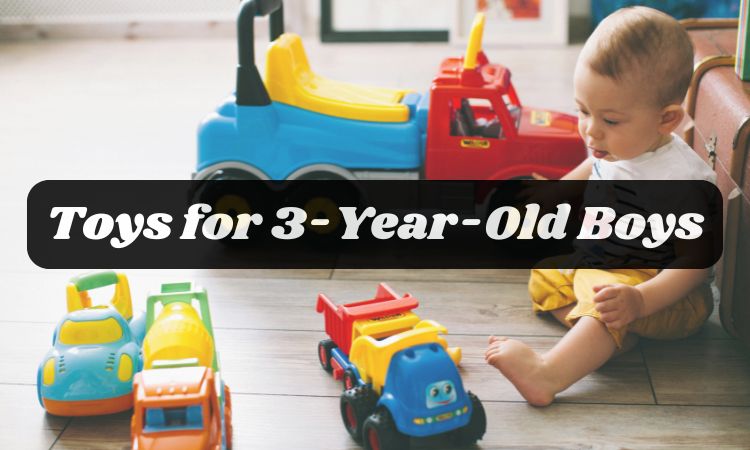Bringing a new baby home is a whirlwind of tiny socks, adorable yawns, and… lots of diapers! As you navigate this exciting journey, you'll likely find yourself pondering many things, including the fascinating world of newborn poop. One question that pops up frequently for new parents is: how often should a newborn poop? It’s a valid concern, and understanding what’s normal can bring you peace of mind. Let's explore the details of newborn poop and understand what's going on inside those diapers!

How Often Should a Newborn Poop ?
The frequency of your newborn's pooping habits can vary quite a bit, especially in the early days. It depends on several factors, primarily their age and how they are being fed. So, how often should a newborn poop? And what about the dreaded question: how long should a newborn go without pooping? Let's break it down.
Birth to 48 hours:
- All babies pass meconium — a thick, sticky, dark green/black poop.
- This is made up of things that your little one ingested in the womb.
- Expect 1–2 meconium poops during this time.
Day 3 to 6 weeks:
- Breastfed babies: 3–5 poops per day, often after each feeding.
- Formula-fed babies: 1–4 poops per day.
- Both types of feeding can cause babies to poop more frequently during this phase.
6 weeks to 3 months:
- Breastfed babies may poop once a day or even once every few days (totally normal if baby is happy and gaining weight).
- Formula-fed babies normally have a single bowel movement daily, though it is also normal for them to occasionally skip a day.
Here’s a friendly chart showing average diaper changes per day by age and feeding style:
|
Baby’s Age |
Feeding Type |
Typical Poop Frequency |
|
0–2 Days |
All |
1–2 meconium poops |
|
3 Days – 6 Weeks |
Breastfed |
3–5 times/day or after meals |
|
Formula-fed |
1–4 times/day |
|
|
6 Weeks – 3 Months |
Breastfed |
1/day to 1 every few days |
|
Formula-fed |
~1/day (every 2 days) |
How to Help My Newborn Poop
How to help my newborn poop? If you are concerned about your newborn's bowel movements, there are a few gentle things you can try. However, always consult your pediatrician before attempting any interventions.
- Bicycle legs: Gently move your baby's legs in a cycling motion while they're on their back. This might encourage bowel movement.
- Tummy time: Supervised tummy time can aid digestion and help with pooping.
- Warm bath: A warm bath can relax your baby, which could make it easier to poop.
- Gentle tummy massage: Gentle massage the tummy with your fingertip clockwise.
- Check feeding: Make sure your baby is feeding well and getting enough fluids.
Remember, every baby is different, and there is a wide range of what is deemed normal. Observing your baby's overall well-being is just as important as the number of poops.

What About Poop Color?
Thinking about how many times a day should newborn poop is one thing, but the color is another important factor to observe. Beyond frequency, the color of your newborn's poop can also provide clues about their health. You'll likely see a spectrum of shades in those early diapers. Understanding these colors can help you differentiate between normal variations and when something might warrant a call to the doctor. So, considering how often newborn poop occurs, let's also look at what those poops look like!
- Black and tarry (meconium): As mentioned earlier, this is the first poop and is completely normal in the initial days.
- Yellow or mustard: This is the normal poop color of breastfed babies. It can range from a pale yellow to a more vibrant mustard shade and often has a seedy consistency.
- Yellow-brown or light brown: For formula-fed babies, expect poop that's typically yellow-brown or light brown and a bit firmer compared to breastfed babies' stools.
- Green: Occasional green poop can be normal. However, if it's consistently green and accompanied by other symptoms like fussiness or watery stools, it could indicate a foremilk/hindmilk imbalance in breastfed babies or a sensitivity.
- Pale or white or grey: White or chalky poop is a red flag and can indicate a liver problem. Immediately contact your pediatrician if you see this.
- Red: Seeing red in your baby's poop can be unsettling, but it's often due to red foods or medications they've had. Small red streaks might also appear from straining, causing a tiny tear near the anus. However, because red can also indicate blood, it's always best to talk to your pediatrician about it.
Observing the color and consistency of your baby's poop, in addition to the frequency, will give you a good overall picture of their digestive health.

When to Call the Pediatrician?
While variations in newborn pooping habits are common, there are certain situations where you should definitely reach out to your pediatrician. It’s natural to wonder why hasn't my newborn pooped? These are obvious concerns that your doctor can help you with. Most newborn poop patterns stay normal. Yet sometimes you’ll wonder, can newborns poop too much? Here’s guidance:
- Signs of inadequate nutrition: Infrequent pooping may mean your baby isn't getting enough milk, especially if breastfeeding.
- Diarrhea with concerning signs: Call if diarrhea lasts over 24 hours or is with dehydration, fever (102°F+), black stool, pus or blood in stool, irritability, sleepiness, or sunken features.
- Constipation with issues: Seek help for constipation not improving with home care, especially if your baby is irritable, has belly pain, or blood in their stool.
- Black or multiple bloody stools: Black poop or more than one instance of blood-tinged stool needs medical attention.
Soothing Tip: Fussy babies who experience digestive discomfort during feeding can benefit from the Alilo baby music player. Its gentle lullabies and soft lights create a calming environment, helping relax your baby during feedings or diaper changes, potentially easing stress around pooping issues.
Conclusion
So, how often should a newborn poop? The answer is… it depends! From explosive yellow poops to “wait, it’s been HOW long?!” phases, every baby dances to their own rhythm. Keep an eye on their cues—color, consistency, and comfort—and don’t stress over the numbers. Understanding poop frequency is just one piece of the puzzle in caring for your precious new arrival. Enjoy these early days, messy diapers and all!
FAQs
How long can newborns go without pooping?
Newborns typically poop at least once a day during the first month. After the initial weeks, some babies, particularly those who are breastfed, may normally poop less often, even going a few days or a week between bowel movements. Their tummy muscles are still developing, so they might strain, cry, or turn red when trying to go. As long as the poop is soft and baby seems content, it's usually nothing to worry about.
How many poops should a newborn have per day?
In the initial few weeks, newborns usually have 2–10 poops a day. Breastfed babies often poop more frequently than formula-fed ones. As babies get older, the number of daily poops tends to decrease. Every baby is different, so some may poop more or less than others—and that’s usually totally normal, as long as they’re feeding well and seem content.
What is the 3 poop rule?
The "3 poop rule" means it’s considered normal to poop anywhere from three times a day to three times a week. Going less than three times a week may signal constipation, while more than three times a day could point to diarrhea. Everyone’s rhythm is different, but this rule helps spot when something might be off—especially in babies and young kids.
How do I know if my newborn is constipated?
You might suspect your newborn is constipated if they poop fewer than 3 times a week, have trouble passing stool, or their poop is hard, dry, or pellet-like. Other signs include a firm tummy, unusually smelly gas or poop, and a decrease in appetite. If your little one appears distressed or exhibits these signs, reaching out to your pediatrician is recommended.







Share and get 5% off!
Simply share this product on one of the following social networks and you will unlock 15% off!